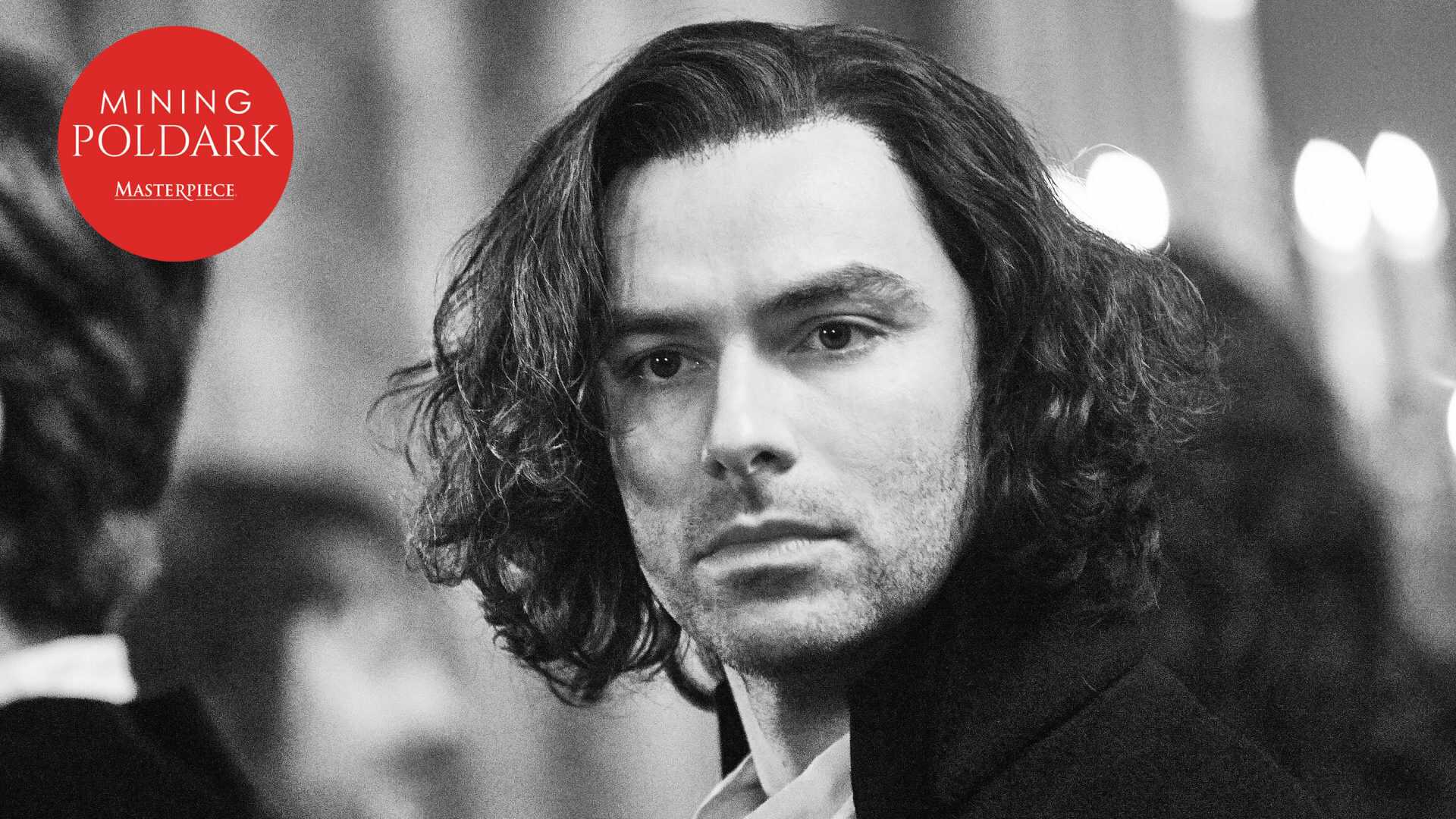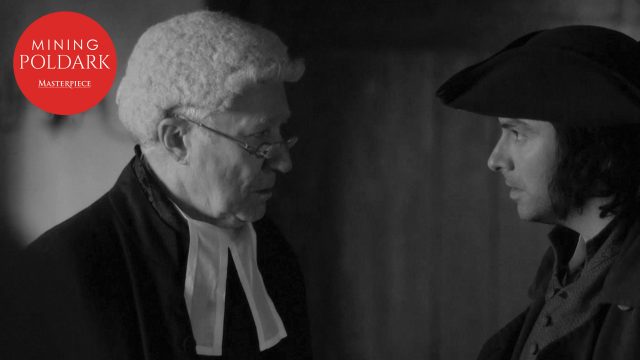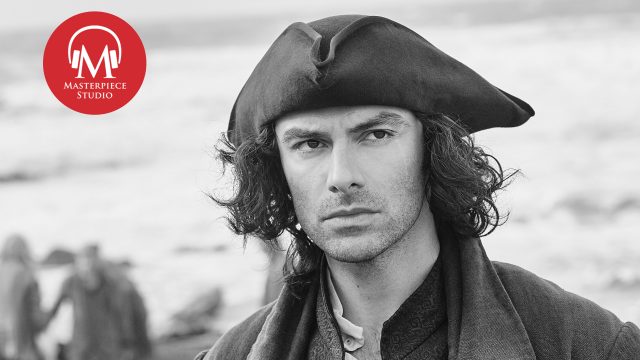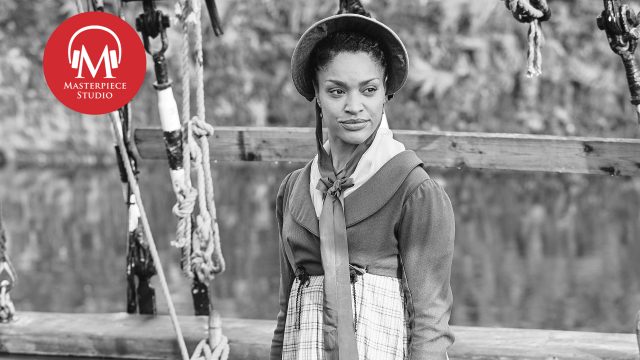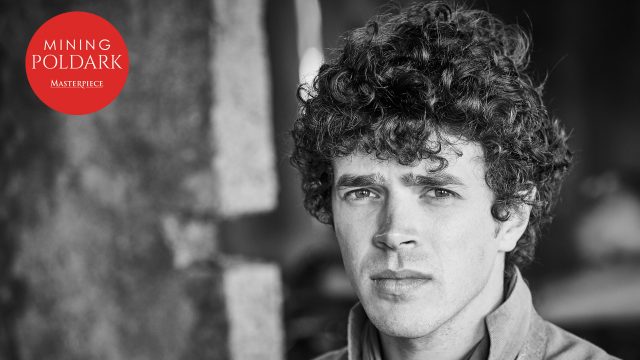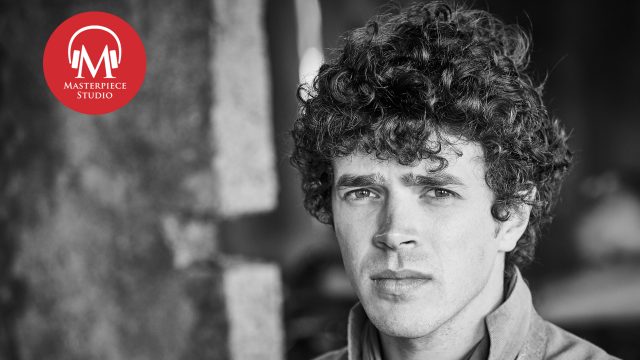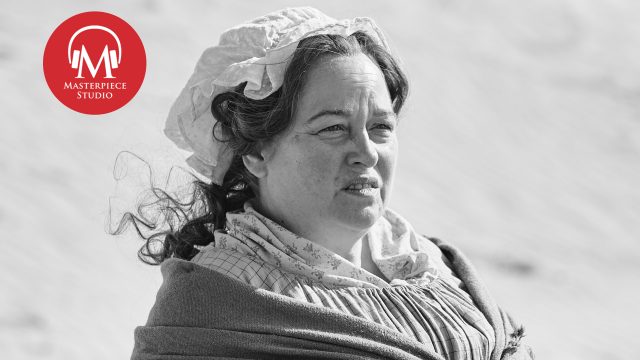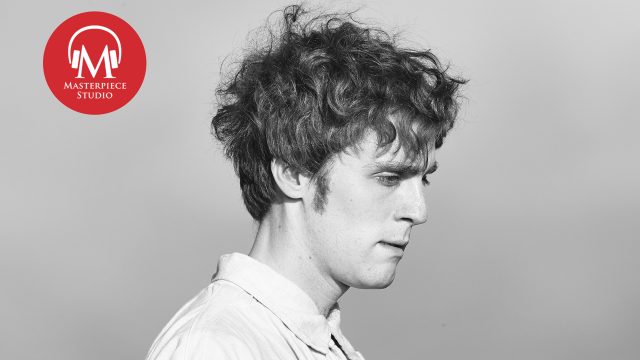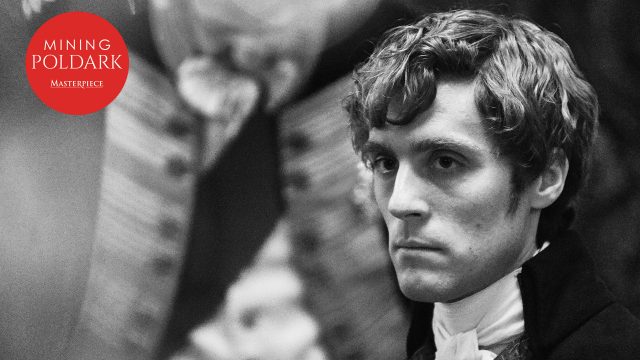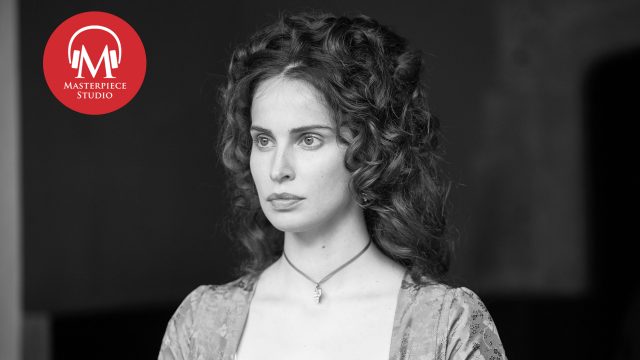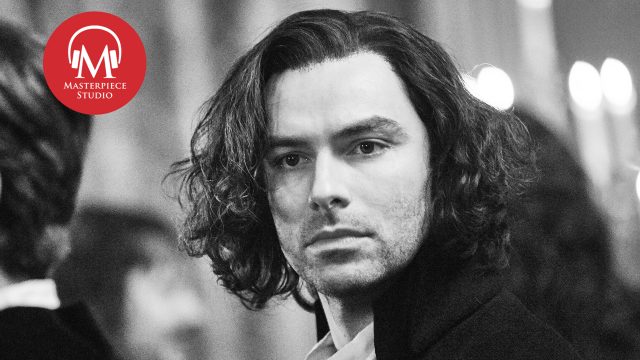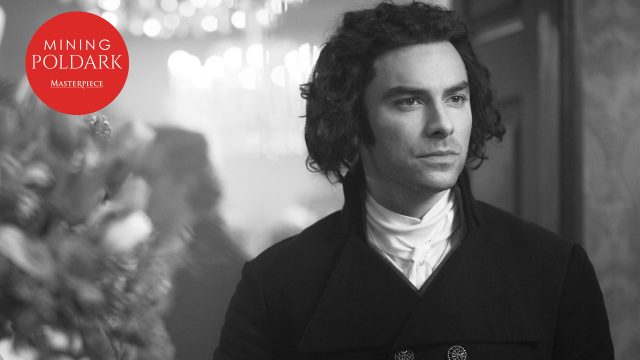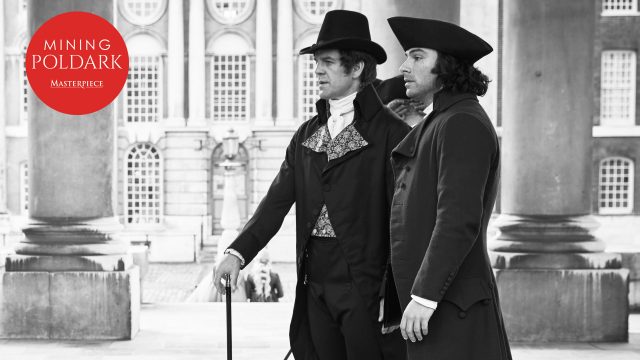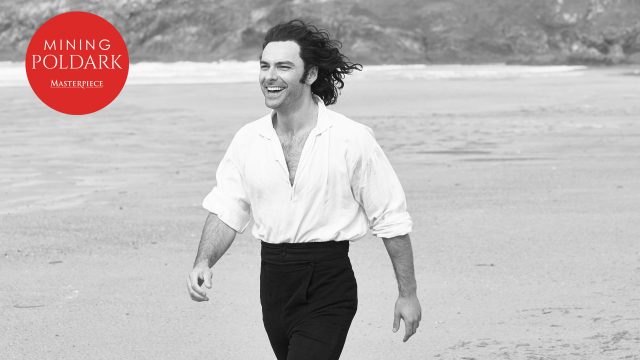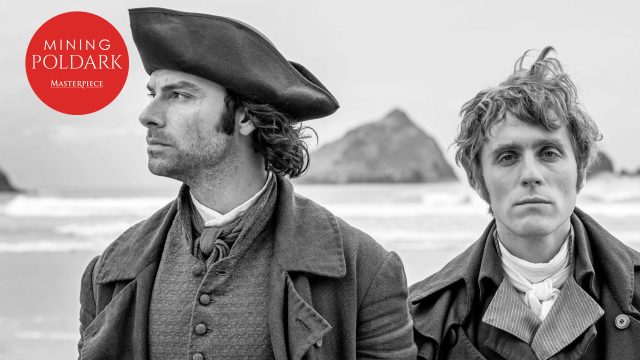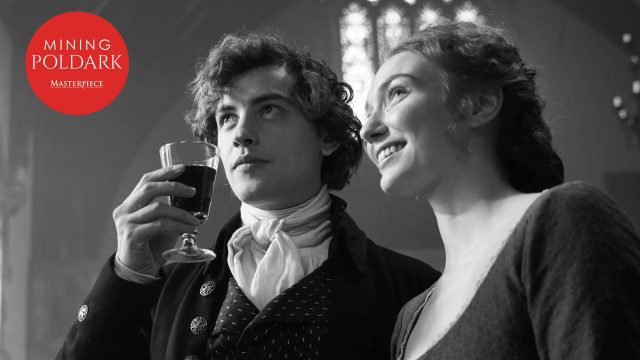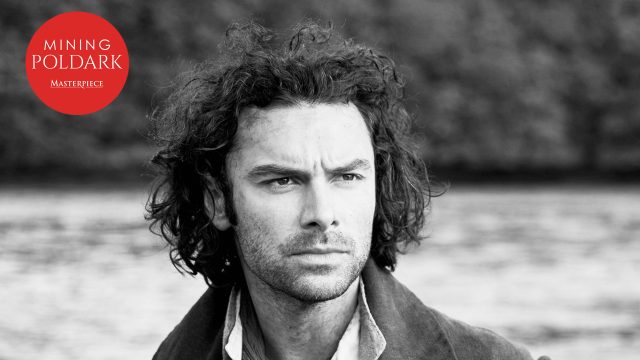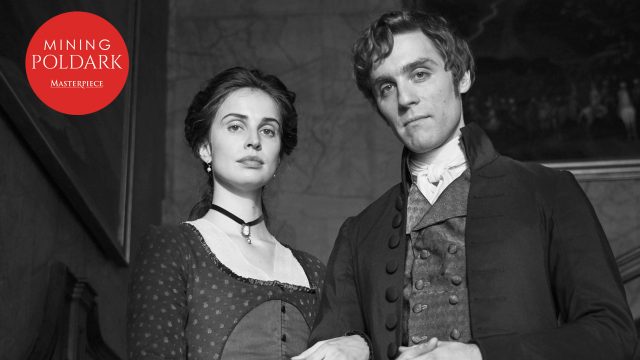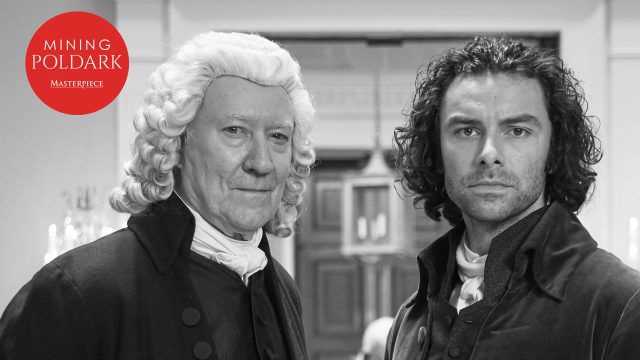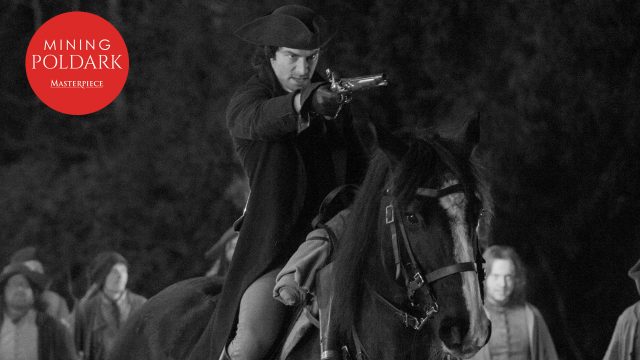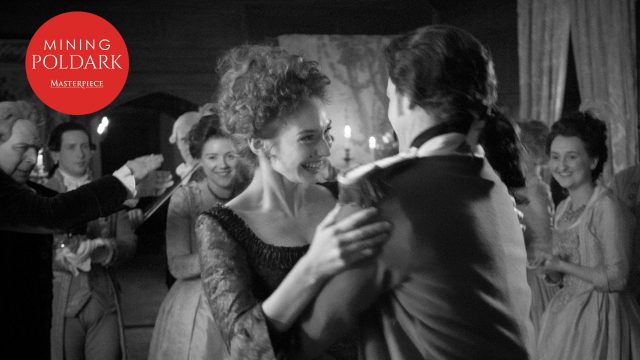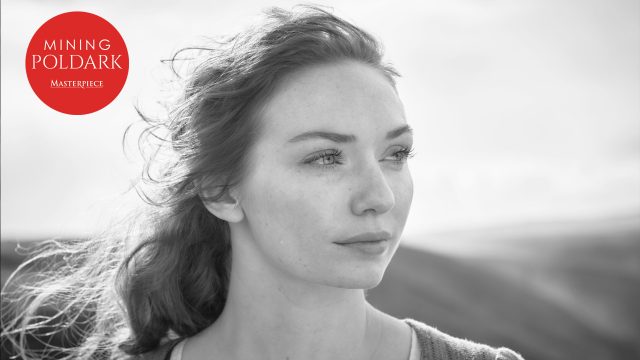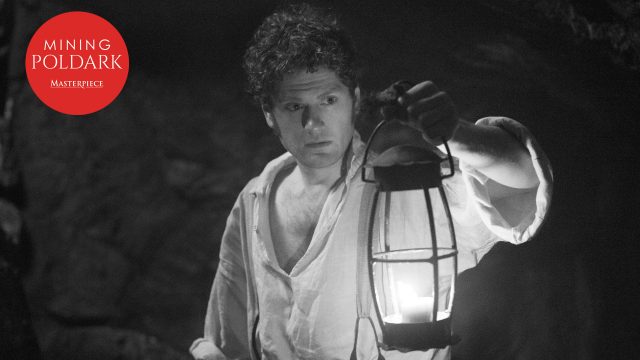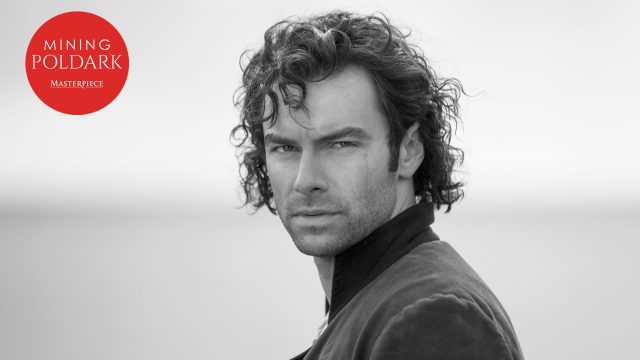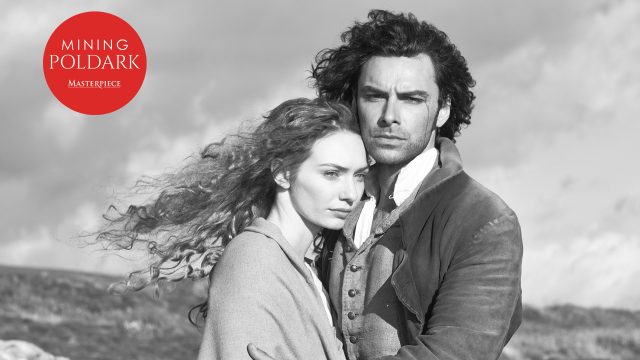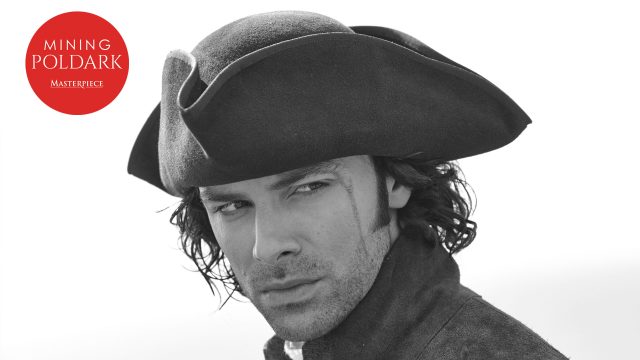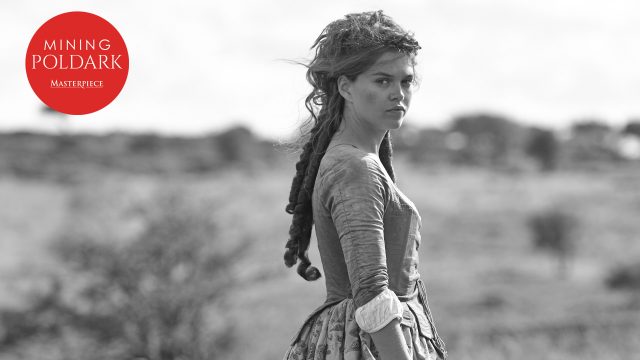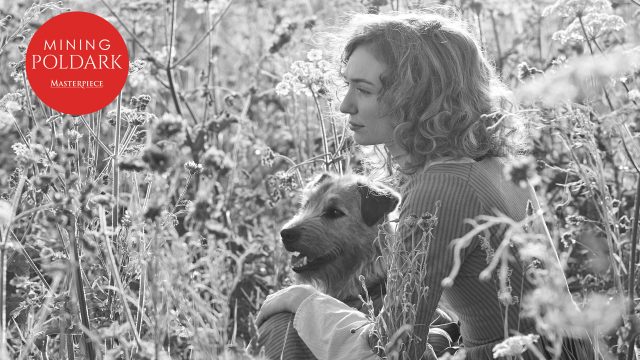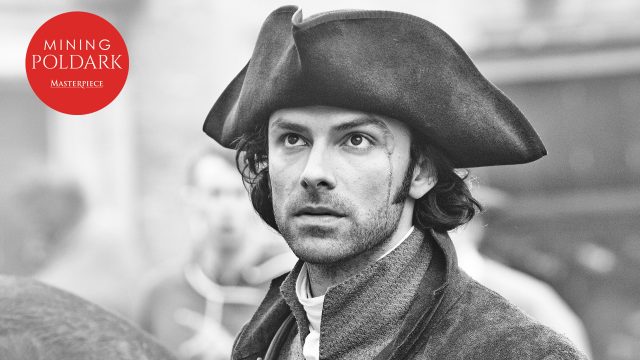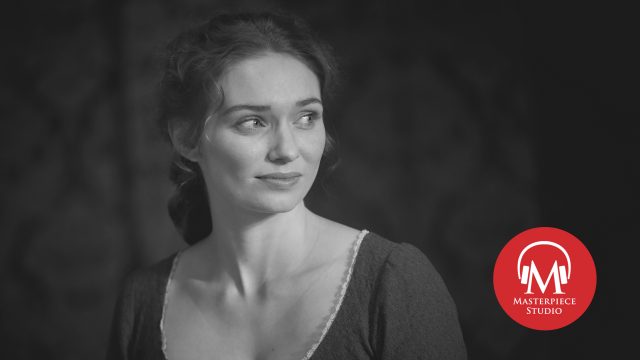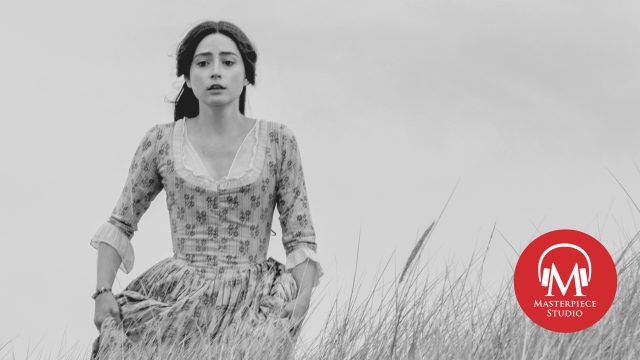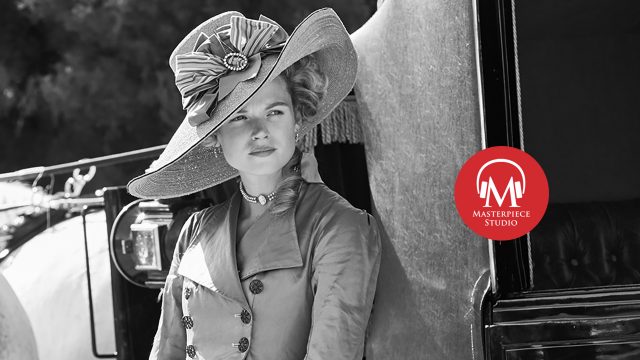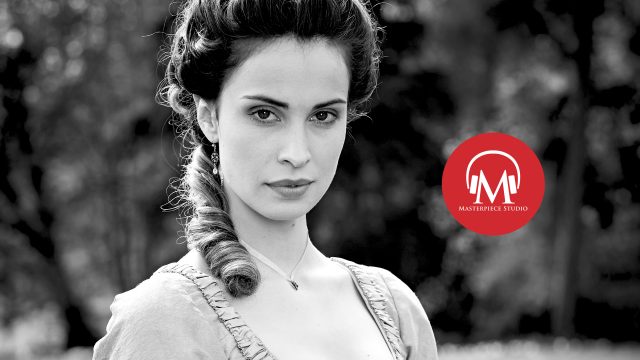In this debut episode of the fifth and final season of our series, we meet a slew of new characters, including Ross Poldark, Assassination-Avoider. We’re confused about the series of events that led our rebellious young hero to a life of noble order-keeping, just as we’re also concerned about the arrival on the scene of Colonel Ned Despard, a fellow lusty warrior type from Ross and Dwight’s time at war.
Download and subscribe on: iTunes | Spotify| RadioPublic
Transcript
Barrett Brountas: Can you believe we’re finally here? The fifth and final season of Poldark has arrived, and so has this final season of this podcast.
Ross and company are up to new schemes, as a long-forgotten Army buddy arrives on scene.
CLIP
Ross On your feet, renegade!
Ned At ease, ensign! And salute when you see a superior.
Ross When I see one, I will!
Barrett The widower Sir George Warleggan, newly enobled, has suppressed all thoughts of Elizabeth, but his grief remains.
CLIP
George Elizabeth should be here.
Cary What?
George Her portrait – should not remain at Trenwith. I omitted to have it brought – I must remedy that.
Barrett And all sacrilege aside, forget about God — Ross saves the King!
CLIP
Ross I arrived at the theatre in time to do his Majesty a service. To be frank, it’s been a tiresome disruption, I hope I may now be permitted to join my friends.
Barrett I’m Barrett Brountas, and this is Mining Poldark, a podcast from MASTERPIECE.
On this final season of this podcast, my co-host, Robin Ellis, and I are going to step back and give our MASTERPIECE colleague, Jace Lacob, the opportunity to carry us through the final eight episodes of the series.
Each episode, I’ll introduce a portion of a conversation between Jace and a member of the Poldark cast and crew, which can all be heard in full on our companion podcast, MASTERPIECE Studio.
Today, we’ll hear from series creator, executive producer and head writer Debbie Horsfield, who explains just how she crafted an entire season of the series without directly adapting one of Winston Graham’s novels.
Jace Lacob There was speculation that the show might feature an 11 year time jump or steamroll through five more books, but instead you crafted a unique narrative for the season that’s removed from the Winston Graham novels. How did you thread the difficult needle that was the final season of Poldark?
Debbie Well it wasn’t completely removed from the Winston Graham novels, because you’re right there is an 11 year time jump between books seven and eight. But in book eight, Winston Graham does drop a lot of clues about things that happened in the in the intervening 11 years. And so as our starting point, I was decided to build on what he had left clues about. But also I guess the main thing was to look at where he left the characters at the end of book seven, and where we joined them again in book eight. And as an example, Ross at the end of book seven is an MP and a mine owner and has an estate in Cornwall, and then at beginning of book eight we see him on a special secret mission for the government in Portugal. So my question was, how did he get from being an MP to basically being a special agent? And there were a few clues that Winston Graham left, but it made me realize there was a lot of detail that we were able to fill in, and so that was my starting point — looking at what was going on in the two years following the end of book seven, so that takes us into the beginning of the 19th century. We are covering 1800 to 1802 and in the style of Winston Graham because he increasingly set his Poldark stories against actual historical events and used real historical characters. So I just began by looking at what was going on politically, culturally, historically and who the big personalities and figures were of that era, and started crafting a story around that.
Jace I mean, I love that entire notion that you’re filling in gaps, which to me is a very clever solution to a complex problem. I mean in terms of the plotting then, how did you set out to sort of track those developments that happened between those novels?
Debbie Well I looked at the clues that Winston Graham had left. So for instance obviously I’ve just described what what Ross’s overall journey was. But there were other clues like Dwight Enys, who you know was a local country doctor and then we we find him at the beginning of book eight, and he’s been summoned to London to treat King George III, and has somehow in the interim become an expert on mental health issues. And so there was another story to to chase through — how did he get to such a kind of eminent position? What were the clues I needed to pick up on? And I discovered Winston Graham mentions that he had decided to follow a more humane approach to treating mental illness instead of the really, really harsh and brutal treatments that were around. And historically there was a Dr. Pinell at an establishment just outside Paris who was dedicated to the more humane treatment. He was a real historical figure and Winston Graham just mentions in passing that Dwight had gone and studied with him for a while. So there again was a clue to to look at you know what his trajectory was.
CLIP
Sam An’ here’s t’ th’ new century! What do it hold f’r’us?
Dwight The Royal College of Surgeons has invited me to join their ranks.
Caroline And their inaugural dinner in London.
Dwight Which Caroline has declined!
Caroline Horace prefers summer in Cornwall!
Debbie Similarly we learn what happens to some of the other characters Drake and more when are we we find out that they’ve more when a has eventually been able to overcome the trauma of her. Hideous marriage to Reverend Whitworth and is happily married eventually to Drake and they have have a child so it was really just picking up on those on those clues and chasing those storylines through. But I guess the the plotting of it really centred around how how Ross went from MP to special agent and what. Who were the characters that may have informed that journey. It was much easier than I thought it was going to be to try to trace Ross’s journey through that and to have him encounter real historical figures who who would fill in some of the gaps on that story.
Barrett Let’s hold on for a second and take a quick break to hear a word form our sponsors….
Jace The conflation of the personal and the political, as you say, Ross’s transformation from MP to spy, the Napoleonic Wars, the abolition of slavery that seems to be a very Winston Graham proposition.
Debbie Yes, absolutely.
Jace What do you think he’d have made of your decisions here?
Debbie Look none of us can tell for certain. I worked very closely with his son, so his son Andrew is the closest we’re ever going to get to to know, and obviously we can’t know what he would have thought. But Andrew Graham has agreed that the method his father used was was increasingly to set his fiction against real historical events and to include real historical personages. And so I was very conscious that I was in a way trying to follow in his footsteps there.
Jace Was there ever a serious consideration that you might adapt the entirety of the final Poldark novels, starting with The Stranger From the Sea, or was that always going to be logistically impossible?
Debbie I don’t think we were ever going to be able to do 12 books in in five series. But we did realize when we came to a potential series five that we were faced with the issue of either not doing a series five at all, but that seemed a shame because everybody really wanted to do it, all the cast wanted to do it, or trying to, which was never really an option, trying to fit five books into eight episodes. And that was just not a goer. So we decided that the option that would work for everybody was to fill in some of the gaps because that then leaves open the possibility that some way down the line someone may do the rest of the books.
Jace This new season takes place in 1800.
Debbie Yeah.
Jace It’s a new century, a time of change and upheaval. Is this sense of looking forward and looking back in keeping with the underlying theme of this final season.
Debbie It is although it’s very it’s really quite forward looking actually because it’s providing the springboard for, which will eventually land Ross where we find him in book eight which is in his new role as a special agent. So in a way series five is about, yes it is certainly about tying up some of the things that that series four had left as loose ends. But there’s a very much a forward-looking sense that you know it is a new century. There are new challenges Ross Demelza. You know our main characters are facing a lot of fresh challenges and. In a way it is not. It’s not really looking backwards very much at all except to find resolution to things that were left hanging at the end of four.
Jace We begin not in 1800, however, but with a flashback to the battlefield of Virginia in 1781. We find a wounded Ross Poldark clinging to life, before he’s saved by Dwight Ennis and Ned Despard.
CLIP
Ned They had no chance! By the time we arrived, it was all over.
Dwight Any other survivors?
Ned No none. And if you lose this one you’ll have me to answer to.
Dwight I’ll do my best, colonel.
Ned Stay with us, friend. You’re a mad fool but we need mad fools here!
Ross Colonel Despard. Ensign Poldark.
Ned I think you’ll find you’re Captain Poldark now! Stitch him up, Enys. His war’s not over yet!
Jace Why did you choose ultimately to begin the final season here in the past with these three?
Debbie Well I think because we were introducing a major new character in Colonel Edward Despard and we needed to make that link between him and Ross and obviously Dwight was there with with the two of them. And Dwight story also is very very much intertwined with Ned and Ross is so it just seemed an elegant way to remind the viewers of where we all began in Series 1 Episode 1 because everything really that is the springboard for everything that happens in season 5.
Jace There’s a sense too that this scene almost bookends the first scene of last year’s season finale which too was a flashback. Was that a deliberate choice in terms of the storytelling?
Debbie We only use flashbacks really inasmuch as they illustrate things that are going on in the present or things that may come to be important in the story.
Jace Where did the idea of using the real life Ned and Kitty Despard come from and are they intended to provide a mirror of sorts for Ross and Demelza?
Debbie Yeah. When I started researching you know the secret societies and thus the potential spying or secret service in the early 19th century, one of the things I discovered was that as I mentioned before the government was really cracking down on any political organizations making a lot of groups illegal even if they were simply set up just to just to seek better working conditions. As an example one of these groups has called the London Corresponding Society which was set up by a couple of workers to improve the lot of the working man but became associated with while in the mind of the government anyway a potential to be a seditious organization. So it was made illegal and I discovered that Colonel Edward Despard had been a member of this and I had no idea who this person was so I started researching him and when I when I researched I realized that he was quite extraordinarily like Ross himself inasmuch as they were both army men. They had both fought in the American War of Independence. They both had a really strong sense of social justice and compassion and care for their fellow men and the really incredible thing was both had married their servants and so I actually asked Andrew Graham, Winston Graham’s son, had his father even been aware of Ned Despard? And Andrew thought he hadn’t, but he certainly agreed that the parallels were really extraordinary and obviously without giving away the story. One of the things I wanted to use the character of Ned for was to in a way put provide a kind of salutary lesson for Ross sort of there but for the grace of God goes Ross as viewers will see as they watch the series. You know there is a while people can look up look it up online I suppose if they really want to but it doesn’t end well for Ned and one wouldn’t want it to end that way for Ross and so Ned provided the really useful parallel of how wrong it could have gone if Ross had continued down a certain road.
Jace That’s to put it mildly.
Debbie Yes.
Barrett That was Poldark creator Debbie Horsfield, in conversation with my MASTERPIECE colleague Jace Lacob. You can hear the rest of that interview, and many more besides, on MASTERPIECE Studio, available at pbs dot org slash MASTERPIECE Studio, or on Apple Podcast, Stitcher, Radio Public or wherever else you listen to podcasts.
Coming up next: trouble in the London pleasure gardens.
CLIP
Ned You go crawl back under your stone Hanson. Rest assured you will be made to pay.
Kitty Ned, be calm. Come away now. It is time we go.
Barrett That’s next time, on Mining Poldark.
And you can join us in our rewatching adventure here on Mining Poldark by watching the entire series on PBS Passport — a new member benefit from your local PBS station. You can watch select MASTERPIECE titles like Poldark, Downton Abbey or Victoria as a part of the Passport experience. To learn more, visit pbs.org/getpassport.
You can also follow along with us on the the PBS Masterpiece Prime Video Channel, available as an add-on service to your Amazon Prime Membership.
Mining Poldark is hosted by me, Barrett Brountas, with co-host Robin Ellis. We’re produced by Nick Andersen, with help from Robyn Bissette. Meredith Wheeler is our field producer. Tina Tobey-Mack is our sound designer. Susanne Simpson is our executive producer. The executive producer of MASTERPIECE is Rebecca Eaton.
Sponsors for MASTERPIECE on PBS are Viking Cruises, Raymond James and The MASTERPIECE Trust. Poldark is a Mammoth Screen production for BBC, co-produced with MASTERPIECE.
MASTERPIECE Newsletter
Sign up to get the latest news on your favorite dramas and mysteries, as well as exclusive content, video, sweepstakes and more.








